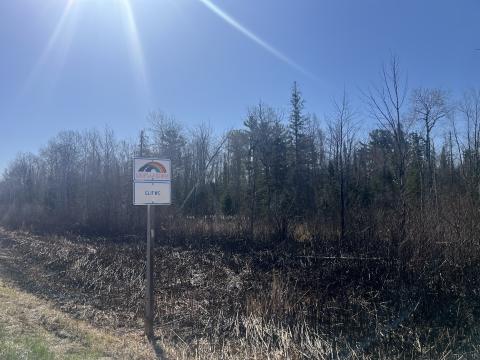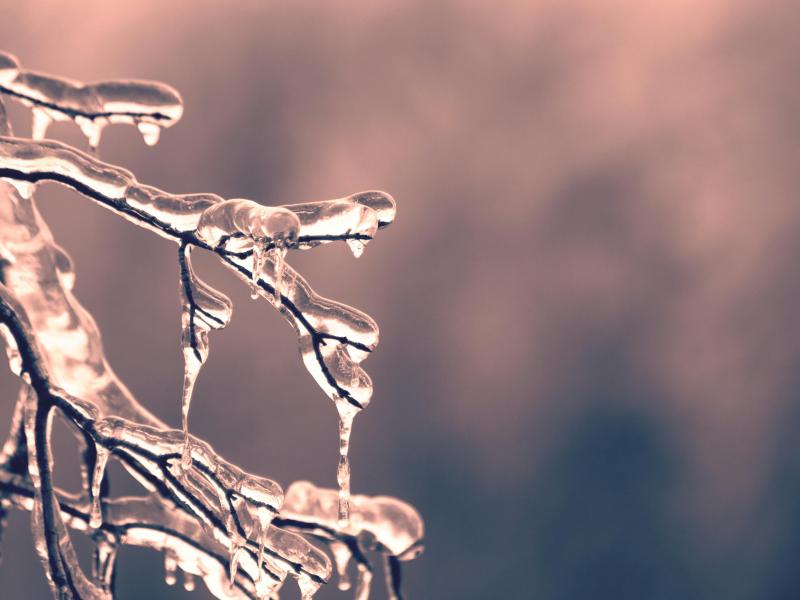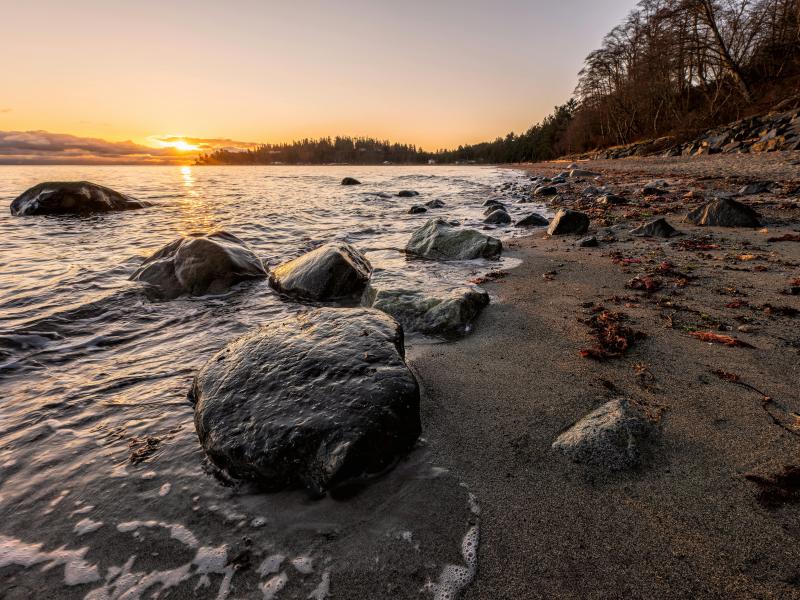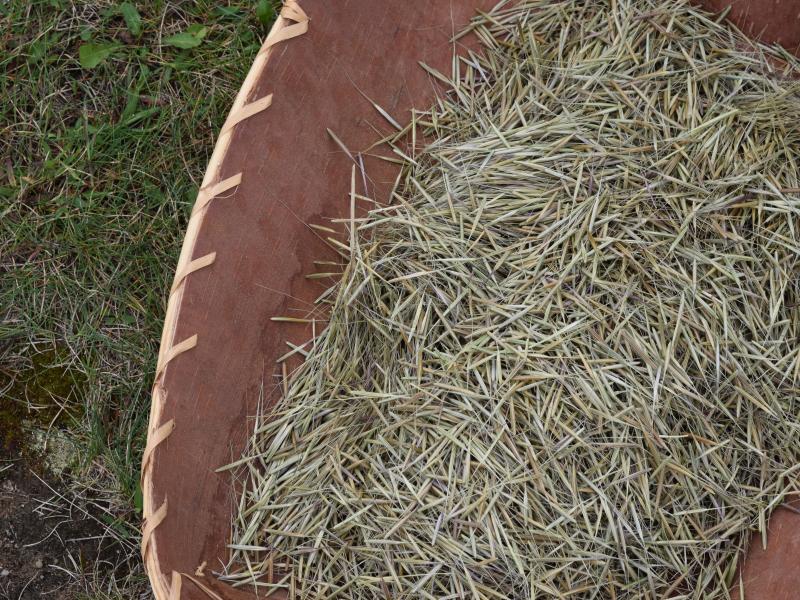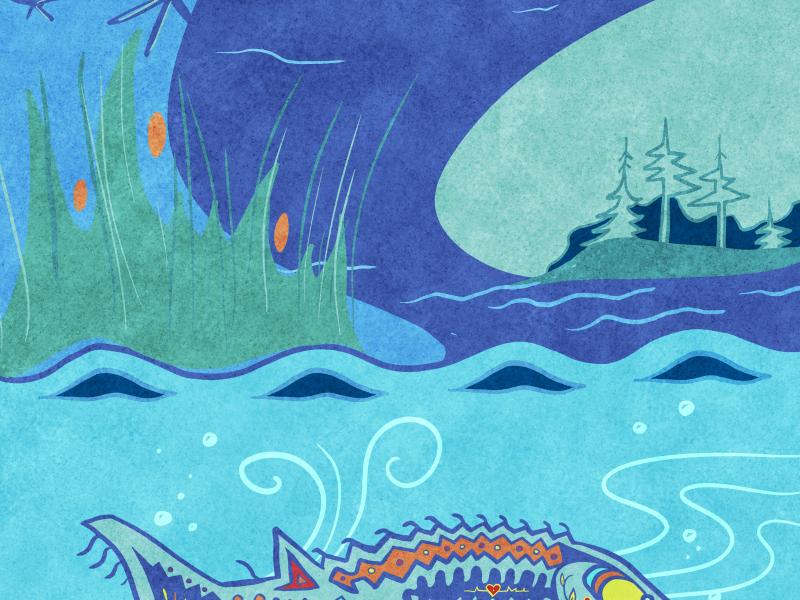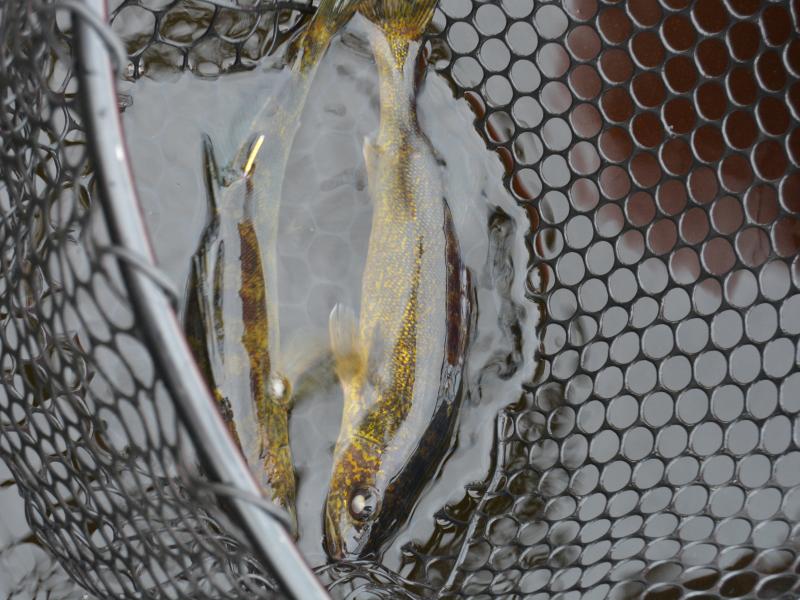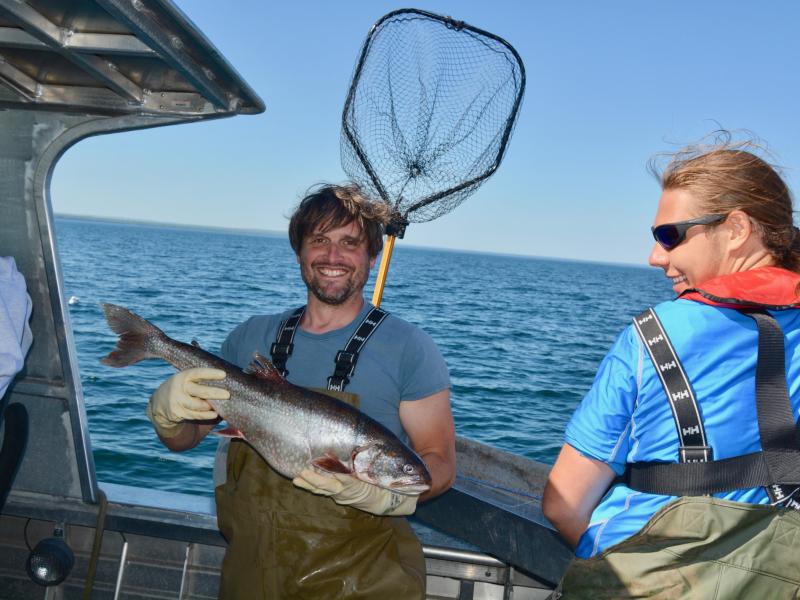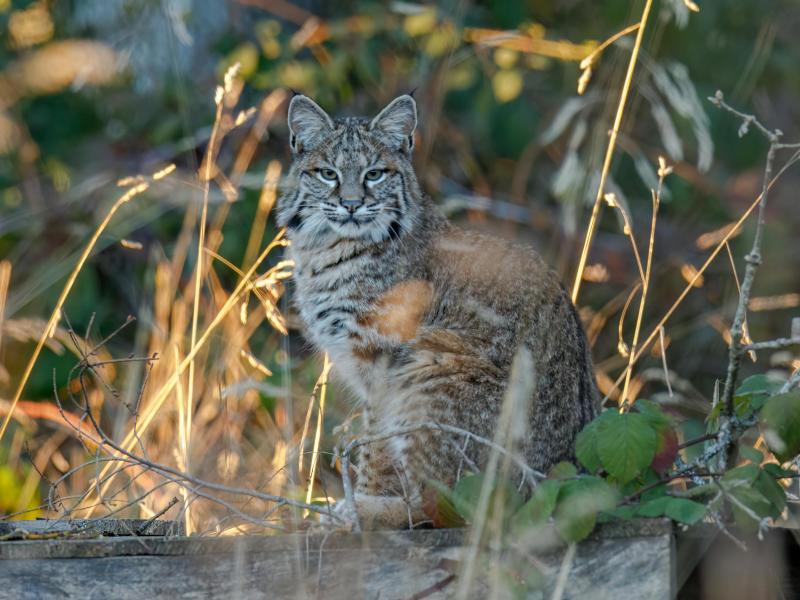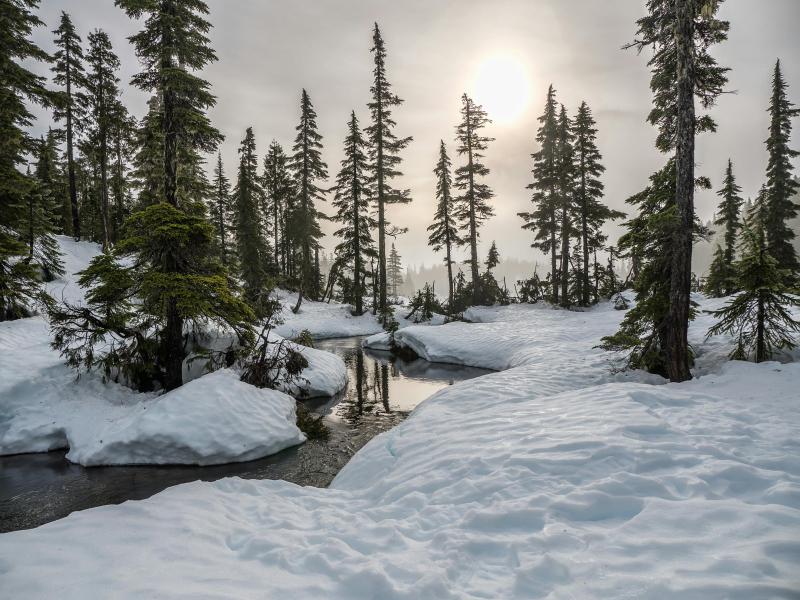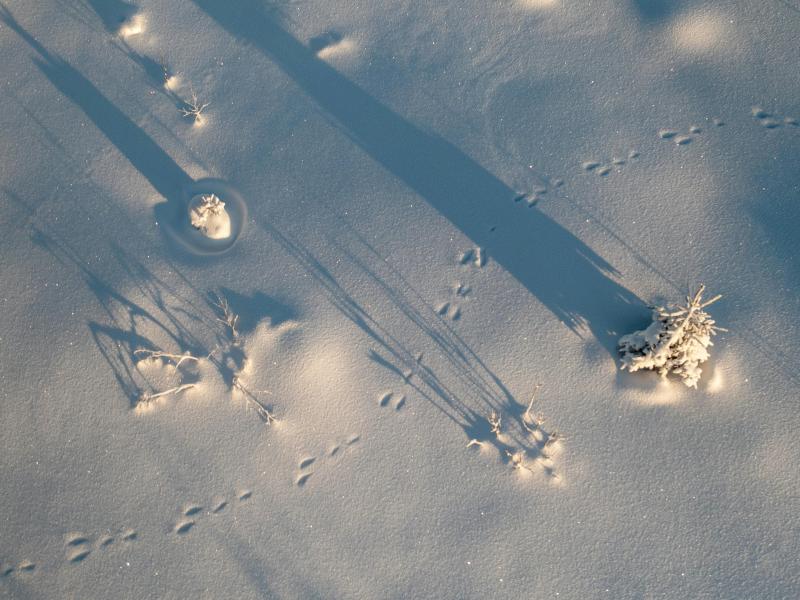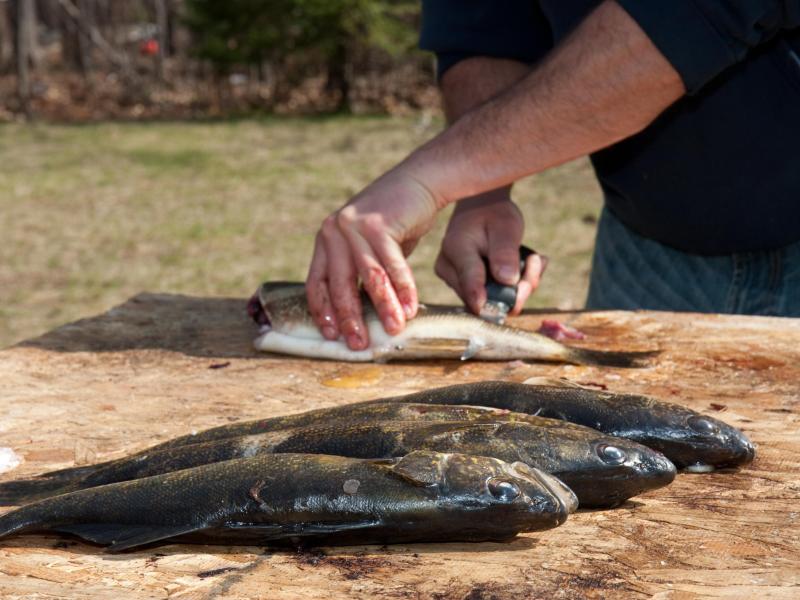A Traditional & Scientific Response to Threats
GLIFWC’s member tribes depend on healthy ecosystems and the fish, plants, and wildlife that these ecosystems support. This dependence is different and to a greater degree than that of the general population.
GLIFWC's stewardship centers around the long term care of living beings that preserve traditional life ways. Extreme weather, flooding, and chemical pollution en masse threatens clean groundwater, healthy lakebeds, and Anishaanabe culture.
Both Traditional Ecological Knowledge (TEK) and Scientific Ecological Knowledge (SEK) play a critical role in GLIFWC's work protecting culturally important plant and animal beings in the Ceded Territories. In the Climate Change Program, we seek to elevate TEK and let it guide our work.
The Great Lakes and their connecting channels form the largest fresh surface water system on earth, hold 1/5 of the world's freshwater supply, are home to millions of people, plants and animal beings.
Ganawenindiwag Manoomin Anishinaabeg means "The Rice and the People take care of each other" and encapsulates the primary goal of the Manoomin program: to increase the health of the human and manoomin relationship, so that the generations yet to come will always know and be able to give thanks fo
GLIFWC's team of biologists represents a wide array of backgrounds, expertise, and high levels of scholarly achievement.
GLIFWC biologists and technicians work to protect ceded territory fish populations and habitat through partnerships, surveys, research, and harvest monitoring in waters throughout the treaty Ceded Territories of Wisconsin, Michigan, and Minnesota.
The Great Lakes Section focuses much of its time on namegos (lake trout), adikameg (whitefish), and odoonibiins (cisco, a.k.a. lake herring), which are a culturally and nutritionally important source of low fat, high protein food which is readily found in local markets.
Wildlife Section biologists and traditional ecological knowledge specialists work with the Voigt Intertribal Task Force, various other agencies, and tribal members to provide expertise in the off-reservation management of wildlife including furbearers, flyers, fish, four leggeds, & wild plant
The Environmental Section works with all of GLIFWC's sections and staff to investigate threats to resources from many different sources. The five major areas in which the section specializes are climate change, nibi (water), contaminants, metallic mining, and oil pipelines.
The forests within the ceded territory are the home to many culturally important beings and provide a location for tribal members to practice their treaty reserved rights.
The Great Lakes Indian Fish and Wildlife Commission (GLIFWC) plays a crucial role in addressing environmental contamination, including mercury and PFAS (per- and polyfluoroalkyl substances), by conducting research, advocating for policy changes, and supporting tribal communities.
Adopted in 2024, GLIFWC staff and interns care for 1.5 miles along US-2 on the Bad River reservation from Reykdal Road/Ojiwbe Road west to Ackley Road/Ajijaak Road three times a year.
